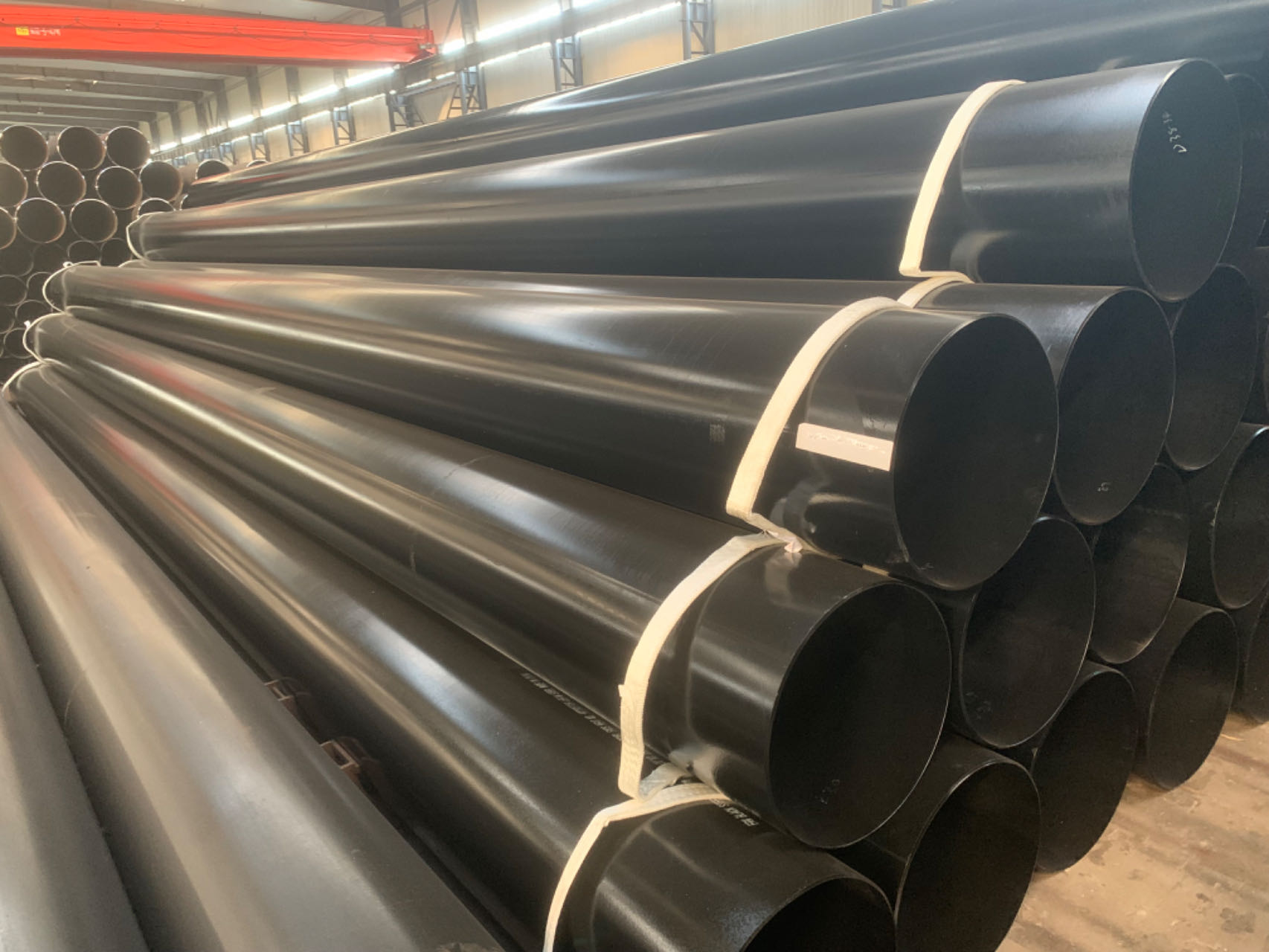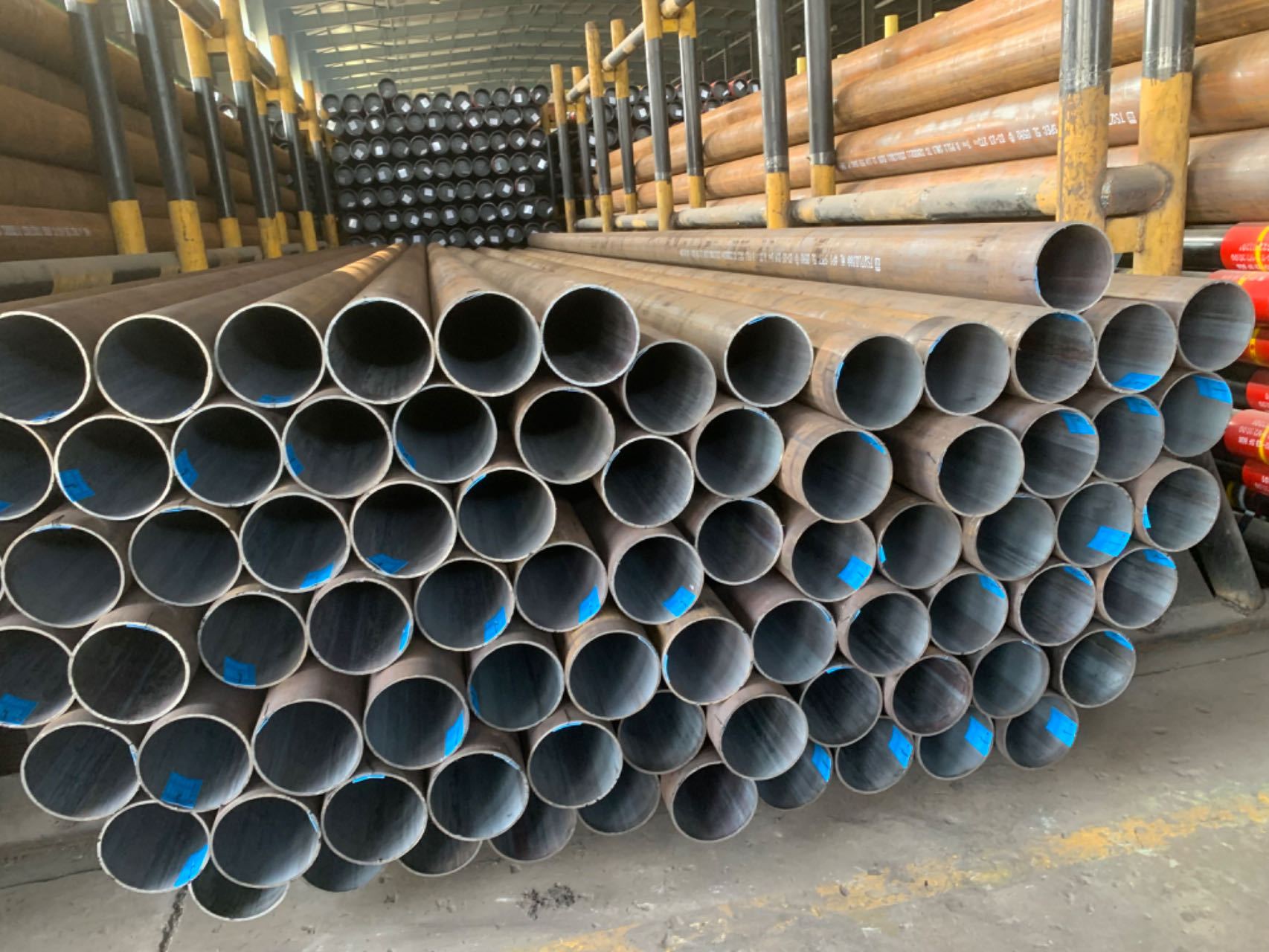Understanding Carbon Steel Pipe
Definition and Composition
Steel pipes made of carbon consist of steel with carbon as the alloy element, in them. The carbon content usually falls within the range of 0.05 % to 0.25 %, thereby impacting the properties of the pipe like its strength and malleability. Additionally, other elements, like manganese, silicon, and copper are frequently included to boost longevity and efficiency. This mixture produces an adaptable material suited for various industrial uses.
Types of Carbon Steel Pipes
Different varieties of carbon steel pipes are available based on how they’re made and their intended applications.
Seamless Pipes: These are formed without seams, offering greater strength and reliability in high-pressure environments. They are commonly used in industries like oil and gas, where safety is paramount.
Welded Pipes: Created by welding two edges together, welded pipes are cost-effective and suitable for applications with lower pressure demands.
High-Frequency Welded (HFW) Pipes: These are used in specific industrial settings where precise dimensions and enhanced performance are required.
Selecting the appropriate carbon steel pipe is essential to guarantee top-notch efficiency in environments.
Manufacturing Process
The process of making carbon steel pipes includes stages that begin with using top-notch steel materials as the base material, for production. To create pipes from steel billets is a step where the billets are stretched and shaped into pipe form. On the contrary welded pipes; are made by rolling and welding the edges together. Once the pipes are formed they go through heat treatment and other finishing touches to enhance their properties like resistance, to corrosion and mechanical strength. Stringent quality checks are carried out throughout each phase to ensure that the pipes adhere to industry standards and meet customer requirements effectively.
Key Advantages of Carbon Steel Pipe in Industrial Applications
Durability and Strength
Carbon steel pipes are recognized for their strength and resilience which enables them to withstand high-pressure conditions and substantial loads effectively; hence they are well suited for applications, in sectors like the oil and gas exploration industry, as well as civil engineering and manufacturing fields where dependability is crucially important. Their sturdy characteristics guarantee a prolonged lifespan resulting in decreased maintenance expenses over the years.
Cost-Effectiveness
When looking at materials such, as steel versus carbon steel pipes the latter presents a cost alternative that doesn’t compromise quality. This affordability is particularly beneficial for projects, with budget limitations. Even though they are cheaper carbon steel pipes don’t compromise performance, which is why they are favored in industries.
High-Temperature Resistance
Carbon steel pipes excel in heat settings, like power plants and chemical processing facilities due to their capability to maintain integrity at increased temperatures which ultimately leads to enhanced safety and efficiency, in demanding situations.
Performance Under Extreme Conditions
Carbon steel pipes are crafted to withstand situations, like temperature shifts and intense pressure levels effectively. Their ability to hold up well in environments helps lower the chances of breakdowns cutting down maintenance time and expenses significantly.
Corrosion Resistance
Even though carbon steel doesn’t possess the resistance to corrosion as stainless steel does; it can still be safeguarded with protective coatings to boost its longevity in environments prone, to corrosion damage. Through methods such as galvanization for improving resistance against corrosion; carbon steel pipes become suitable for use in areas, like water transportation systems, sanitary sewer networks, and chemical processing industries.
Comparison with Other Pipe Materials
Carbon Steel vs. Stainless Steel
The key distinction, between carbon steel and stainless steel pipes is their makeup composition difference; stainless steel has chromium to offer corrosion protection at a price point while carbon steel is favored for its strength and affordability, in projects not requiring superior corrosion resistance.
Carbon Steel vs. PVC
Chloride (commonly known as PVC) pipes are commonly chosen for plumbing and drainage systems because of their build and resistance, to corrosion. On the other hand,carbon steel pipes provide enhanced strength and longevity making them more suitable, for tasks that demand pressure and load-bearing capacity.
Common Industrial Applications
Oil and Gas Industry: Transporting Petroleum Products
Carbon steel pipes play a role, in the oil and gas sector for moving petroleum goods securely due to their robustness and endurance, in high-pressure settings to prevent any potential leaks or failures during operations.
Chemical Processing Plants: Handling Corrosive Substances
In chemical plants that process materials chemically speaking carbon steel pipes are frequently selected for their capacity to manage a range of substances. Although they may need coatings they offer an economical option, for moving chemicals in challenging conditions.
Construction Industry: Structural Support
Carbon steel pipes are often utilized in the construction industry to provide reinforcement in building and infrastructure developments due, to their excellent strength-to-weight ratio which renders them perfect for supporting loads in columns and beams as well, as frameworks.
Plumbing Systems
Carbon steel pipes are commonly utilized in plumbing setups for delivering water and managing drainage in commercial environments showcasing their durability, under intense pressure and temperature fluctuations for sustained effectiveness, in challenging plumbing tasks.
Enhancing Project Efficiency with Sunrise Products
Product Overview: Sunrise’s Carbon Steel Pipes
At SUNRISE NEW MATERIAL you can find top-notch carbon steel pipes that adhere to ASTM, API, and ASME standards, for industry use. They are crafted to last and deliver performance across a range of settings. SUNRISE meticulously checks the quality of their carbon steel pipes to guarantee functionality, in environments.
Customer Service and Technical Support
The service department of SUNRISE NEW MATERIAL provides assistance and technical help to guarantee the triumph of each endeavor. Including advising on pipe specifications and giving instructions, on installation tasks the skilled team, SUNRISE NEW MATERIAL’s technical team is committed to assisting customers in achieving carbon steel pipe results.








